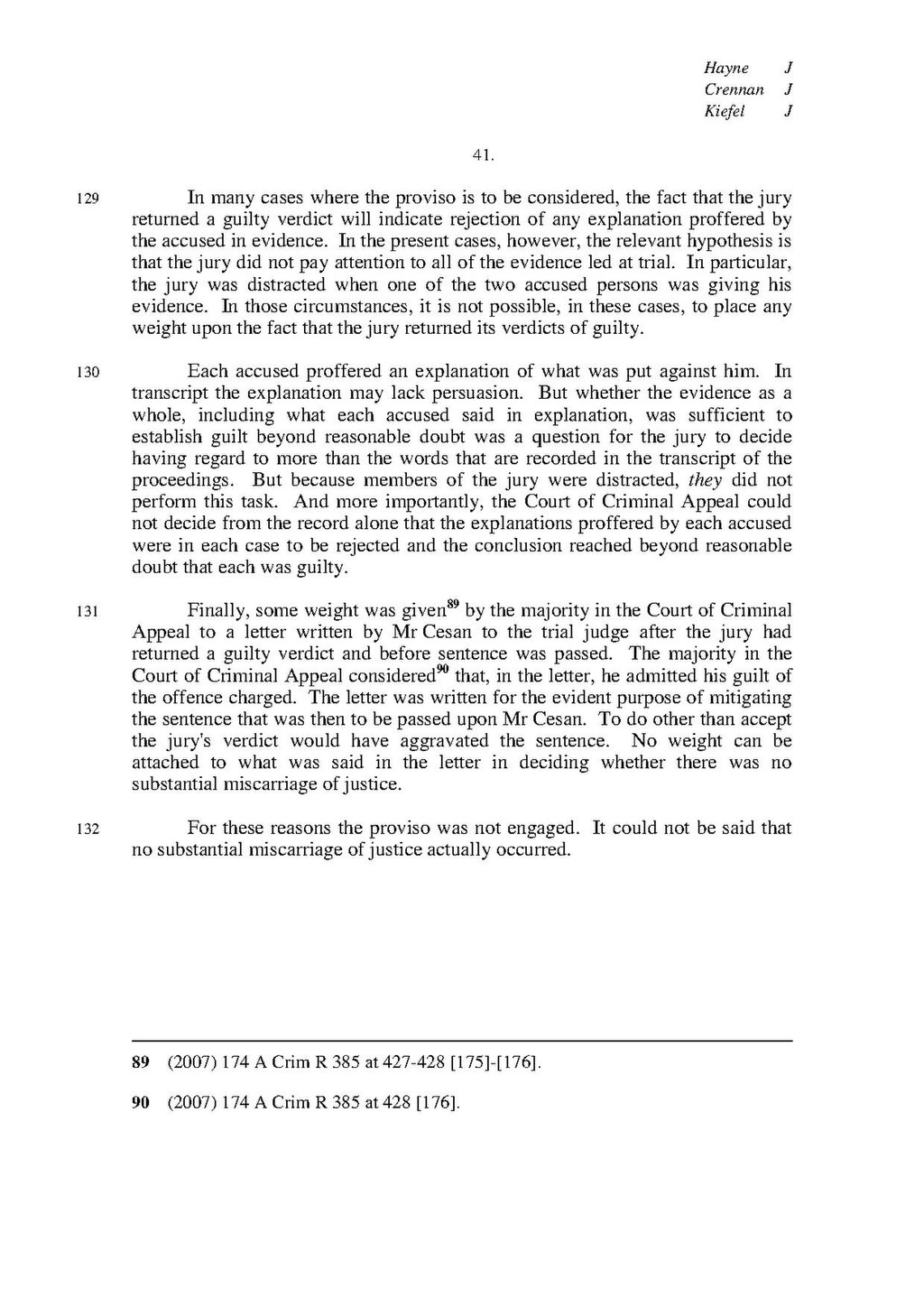Hayne J
Crennan J
Kiefel J
41.
In many cases where the proviso is to be considered, the fact that the jury returned a guilty verdict will indicate rejection of any explanation proffered by the accused in evidence. In the present cases, however, the relevant hypothesis is that the jury did not pay attention to all of the evidence led at trial. In particular, the jury was distracted when one of the two accused persons was giving his evidence. In those circumstances, it is not possible, in these cases, to place any weight upon the fact that the jury returned its verdicts of guilty.
Each accused proffered an explanation of what was put against him. In transcript the explanation may lack persuasion. But whether the evidence as a whole, including what each accused said in explanation, was sufficient to establish guilt beyond reasonable doubt was a question for the jury to decide having regard to more than the words that are recorded in the transcript of the proceedings. But because members of the jury were distracted, they did not perform this task. And more importantly, the Court of Criminal Appeal could not decide from the record alone that the explanations proffered by each accused were in each case to be rejected and the conclusion reached beyond reasonable doubt that each was guilty.
Finally, some weight was given[1] by the majority in the Court of Criminal Appeal to a letter written by Mr Cesan to the trial judge after the jury had returned a guilty verdict and before sentence was passed. The majority in the Court of Criminal Appeal considered[2] that, in the letter, he admitted his guilt of the offence charged. The letter was written for the evident purpose of mitigating the sentence that was then to be passed upon Mr Cesan. To do other than accept the jury's verdict would have aggravated the sentence. No weight can be attached to what was said in the letter in deciding whether there was no substantial miscarriage of justice.
For these reasons the proviso was not engaged. It could not be said that no substantial miscarriage of justice actually occurred.
